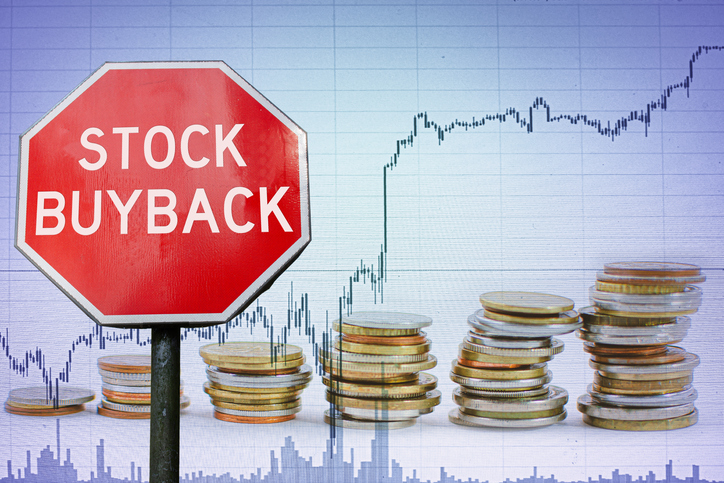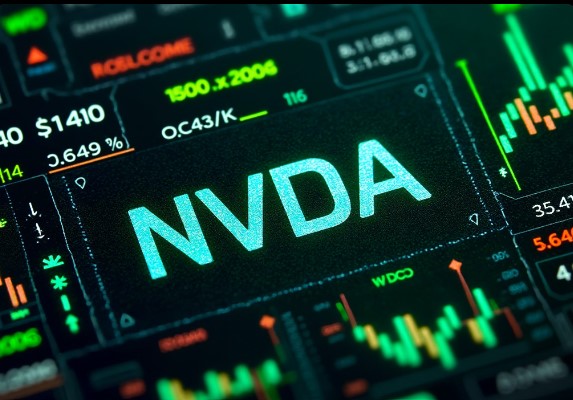Democratic presidential candidate Kamala Harris has signaled that she supports quadrupling the 1% percent surcharge placed on corporate share repurchase programs by the Inflation Reduction Act of 2022. The stated purpose of the 4% stock buyback tax proposal is to reduce the comparative tax advantage that buybacks have over dividend payouts as a way of rewarding shareholders. This could potentially affect the shareholders of Nvidia ($NVDA), which had recently announced a $50 billion buyback plan. Here’s what investors should know.
If you’re considering investing in a stock that has a major repurchase program underway, consider discussing your plans with a financial advisor.
Initial Stock Buyback Tax First Went Into Effect in 2022
Corporations repurchase their own shares in the stock market as a way to reward shareholders. By taking their shares off the market, the companies increase the value of every share held by stockholders. The stock buyback tax is levied on the company, not individual shareholders. While individuals don’t pay the buyback tax directly, it might indirectly affect them through corporate behavior if taxes are structured in a way that disincentivizes buybacks.
An alternative way for businesses to reward shareholders is through paying dividends. This also returns value to shareholders, but creates current taxable income for shareholders, while the capital gains from share buybacks aren’t owed until the shares are sold.
The imposition of the 1% buyback tax in 2022 did not lead to a lower level of buybacks, however. A report from Goldman Sachs found that stock buybacks increased 14% in 2023 to $815 billion. This year, the firm’s analysts forecast a further 13% increase to $925 billion, followed by a 16% rise in 2025 to $1.07 trillion.
An analysis by researchers affiliated with the Wharton School at the University of Pennsylvania suggested that buybacks have continued to rise because the 1% tax may not have been large enough to reduce the comparative tax advantage enjoyed by buybacks. However, quadrupling the tax to 4% would eliminate approximately 85% of the tax preference, researchers found.
Nvidia Announced a New Stock Buyback
During its second quarter 2025 earnings report this past August, Nvidia announced a $50 billion share repurchase program. The company had already repurchased $14.9 billion worth of its stock in the first half of its fiscal year that ended in July. It still had $7.5 billion remaining under a previous share repurchase authorization.
By comparison, during the first half of its fiscal year, Nvidia paid out a relatively small amount in dividends, totaling $344 million. The company’s shareholders are entitled to a cash dividend of $0.04 per share, payable quarterly at a rate or $0.01 per share.
Sign up for the Market Minute newsletter for news that may impact Nvidia and other potential investments.
How Nvidia’s Buyback Could Be Affected
The $50-billion buyback authorization by Nvidia’s board of directors doesn’t necessarily mean the company will actually buy that amount of its own shares any time soon. For instance, it has yet to spend $7.5 billion of a $25 billion previous authorization. It’s possible the company might not buy any more of its own shares, and a change in tax law could conceivably affect its actions.

Instead of repurchasing its own shares, Nvidia could increase its dividend. The company has approximately 24.5 billion shares outstanding. So, if an amount equal to the $50 billion repurchase authorization were instead directed to increase the dividend, each share hypothetically could be entitled to higher cash dividend payments. Investors who were seeking income more than potential for price appreciation would likely become more interested in Nvidia shares were that to happen.
Corporations have a number of reasons for doing buybacks beyond preferential tax treatment to dividends. To begin with, instituting a dividend implies a long-term commitment to continuing to pay the dividend. A one-time share repurchase rewards shareholders without any commitment. If a company isn’t sure it’s reasonable to keep paying the dividend, it might reward shareholders with a one-time buyback instead.
Repurchases also help to keep the number of company shares in circulation from increasing when shares are added due to the exercise of employee stock options. This avoids dilution of existing shareholders’ holdings while also rewarding employees with an equity stake in the company. In addition, repurchases can enable large investors and top executives with large holdings to sell their shares on the public market without causing dilution.
Consider speaking with a financial advisor about how taxes could impact your investment strategy.
Bottom Line
The 4% tax on corporate share repurchases proposed by presidential candidate Kamala Harris would reduce the tax advantage that repurchases enable investors compared to dividends. This could cause active share repurchasers such as Nvidia to shift more toward using dividends to reward shareholders. That might lower or potentially reverse the rising tide of repurchases, which otherwise is expected to top $1 trillion in 2025. In the case of Nvidia or other companies with buyback plans, switching into dividends could provide immediate cash flow but also a higher tax burden for retail investors.
Tips
- Money is always in motion. Sign up for the Market Minute newsletter to get a summary of economic and financial news that could impact potential investments like NVDA.
- Finding a financial advisor doesn’t have to be hard. SmartAsset’s free tool matches you with up to three financial advisors in your area, and you can interview your advisor matches at no cost to decide which one is right for you. If you’re ready to find an advisor who can help you achieve your financial goals, get started now.
- If you have stocks in your portfolio that have appreciated, consider the impact of capital gains taxes before selling them. SmartAsset’s Capital Gains Tax Calculator with provide an estimate of the taxes you may ow on your gains.
- Keep an emergency fund on hand in case you run into unexpected expenses. An emergency fund should be liquid — in an account that isn’t at risk of significant fluctuation like the stock market. The tradeoff is that the value of liquid cash can be eroded by inflation. But a high-interest account allows you to earn compound interest. Compare savings accounts from these banks.
- Are you a financial advisor looking to grow your business? SmartAsset AMP helps advisors connect with leads and offers marketing automation solutions so you can spend more time making conversions. Learn more about SmartAsset AMP.
Photo credit: Grok, ©iStock.com/Maria Vonotna
This is not an offer to buy or sell any security or interest. All investing involves risk, including loss of principal. This article IS FOR INFORMATIONAL PURPOSES ONLY AND IS NOT INTENDED TO PROVIDE LEGAL ADVICE, TAX ADVICE, ACCOUNTING ADVICE OR FINANCIAL ADVICE. Before making any final decisions or implementing any financial strategy, you should consider obtaining additional information and advice from your accountant or other financial advisers who are fully aware of your individual circumstances. SmartAsset’s services are limited to referring users to third party advisers registered or chartered as fiduciaries (“Adviser(s)”) with a regulatory body in the United States that have elected to participate in our matching platform based on information gathered from users through our online questionnaire. We do not manage client funds or hold custody of assets, we help users connect with relevant financial advisors.
